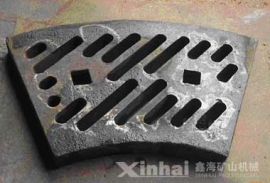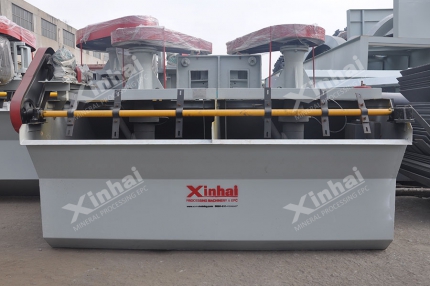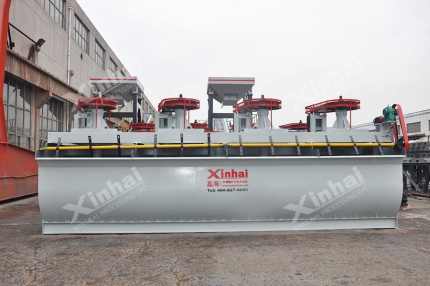Pyrites mostly exist in sedimentary pyrite deposits, polymetallic pyrite deposits and skarn pyrite deposits. Pyrite includes pyrite, pyrite, pyrrhotite and other minerals, among which pyrite is more common. Pyrite resources are rich, so the economic rationality of beneficiation process should be considered when recovering. In the extraction process, pyrite is generally separated by flotation method. With the different properties of pyrite ores, single separation processes such as flotation and gravity separation or combined processes can be selected for recovery. In this article, we will take you to understand the pyrite ore extraction process.

Use the table of contents below to navigate through the guide:
01Single gravity concentration process of pyrite
The single gravity separation process is generally applied to pyrite ores with simple ore properties, coarse embedded particle size or uneven embedded particle size. Pyrite in lead-zinc ore or chalcopyrite flotation tailings can be recovered by single flotation method. This process generally uses gravity separation equipment such as jigger, shaker, spiral chute and hydrocyclone, with simple process, simple equipment maintenance, low energy consumption and low beneficiation cost. However, the recovery rate of pyrite is also low.
02Single flotation process of pyrite
Flotation process is the main beneficiation process of pyrite. Pyrite is often produced in carbonate or silicate rocks in the process of mineralization, which contains a large amount of silicon and calcium. The pyrite ore mainly consists of carbonate gangue minerals, which are mainly dolomite, calcite, etc. These minerals are harmful impurities in the subsequent preparation of pyrite, and will consume a lot of acid, so they need to be removed in alkaline medium.

Pyrite is generally used as collector for single pyrite, among which butyl xanthate is commonly used. When pyrite is oxidized, the flotation effect will be affected to a certain extent. At this time, sulfuric acid, oxalic acid and other reagents can be added as activators to improve the flotation recovery of pyrite.
When pyrite contains chalcopyrite, galena, sphalerite and other valuable metal associated sulfide ores, flotation of other valuable metal sulfide ores is required first. At this time, pyrite is inhibited to improve the concentrate grade of other target minerals. Generally, lime, sodium sulfide and other inhibitors are used to inhibit pyrite under alkaline conditions. After the recovery of other associated minerals, sulfuric acid can be used as the activator of pyrite, and then the pyrite can be recovered by flotation.

03Combined process of pyrite gravity concentration flotation
This process is mainly suitable for pyrite with uneven particle size or fragile and easy to grind. The combined process flow of gravity concentration and flotation is generally as follows: rough grinding and classification of raw ore, and separation with appropriate gravity concentration equipment to obtain a part of pyrite concentrate. Then, the middlings and tailings from gravity separation shall be subject to regrinding and re concentration by adopting appropriate flotation process to obtain high-quality pyrite concentrate.

The above are three common beneficiation processes for pyrite. It should be noted that the economic rationality of the beneficiation process should be considered when recycling pyrite, and the high-grade concentrate should be considered as far as possible under the premise that the ore property allows. Therefore, Xinhai suggests to analyze and test the ore first, find out the nature and composition of the ore, and formulate the process flow with scientific and reasonable means to avoid economic losses and resource waste.


 marketing@ytxinhai.com
marketing@ytxinhai.com  0086 13810327080
0086 13810327080 






































































































 CHAT
CHAT MESSAGE
MESSAGE






